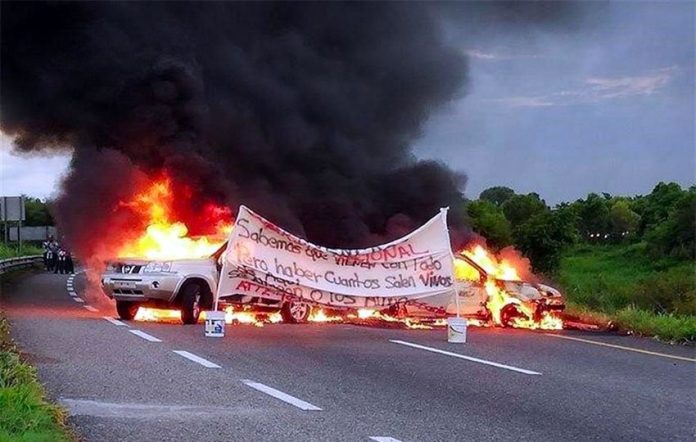As the National Guard deploys 70,000 troops to fight crime around the country, criminal elements in Tabasco gave the new security force a message, but not a welcoming one.
Traffic was blocked Monday morning with four burning vehicles left on the Villahermosa-Teapa highway, one of Villahermosa’s busiest thoroughfares.
Along with the vehicles, which were left on the highway around 7:00am, was a threatening message for the National Guard.
“Welcome, National Guard. We know you’re bringing all you’ve got, but let’s see how many leave alive.”
Signed by “El Pelón, from Playas de Rosario,” it also warned the Guard to “get in line, or we will get you in line.”
Firefighters and Civil Defense extinguished the fires and removed the vehicles from the roadway and traffic was moving again by 10:00am.
In addition to the National Guard troops that have already been deployed for immigration enforcement on Tabasco’s border with Guatemala, 300 troops will be deployed to perform security functions around the state.
The priorities of the National Guard in Tabasco will be to fight high-impact crimes like drug dealing and fuel theft.
Source: Reforma (sp), El Financiero (sp), Animal Político (sp)
